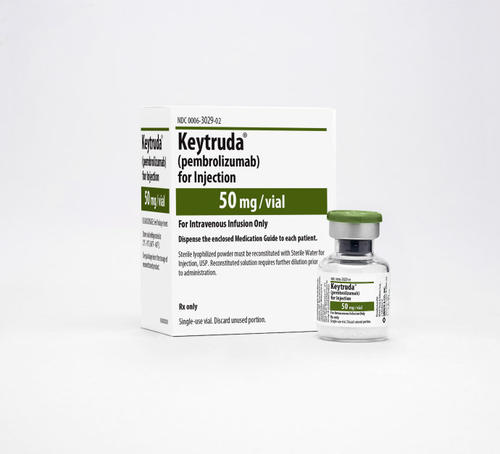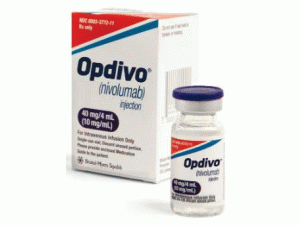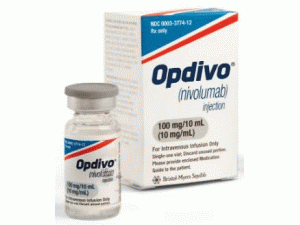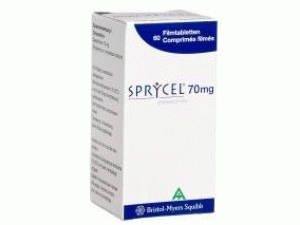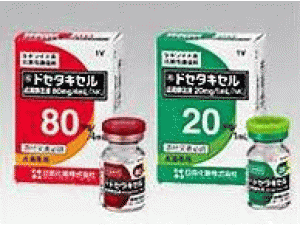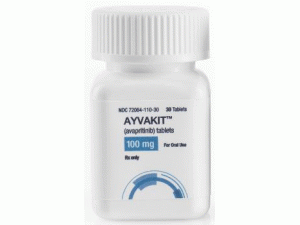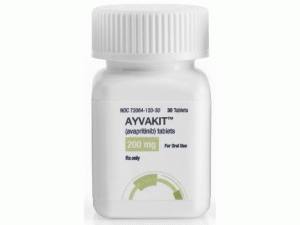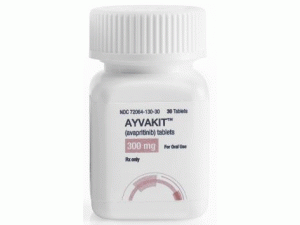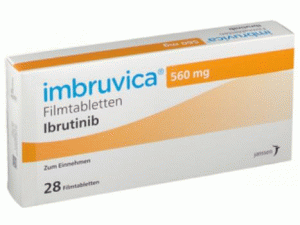盐酸罗拉吡坦胶囊片Varubi(rolapitant Tablet)
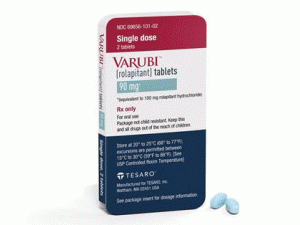 产地国家:美国
处方药:是
所属类别: 90毫克/胶囊片 2胶囊片/盒
包装规格: 90毫克/胶囊片 2胶囊片/盒
计价单位:盒
原产地英文商品名:VARUBI 90mg/Tablet 2Tablet/box
原产地英文药品名:Rolapitant
中文参考商品译名:VARUBI 90毫克/胶囊片 2胶囊片/盒
中文参考药品译名:盐酸罗拉吡坦
产地国家:美国
处方药:是
所属类别: 90毫克/胶囊片 2胶囊片/盒
包装规格: 90毫克/胶囊片 2胶囊片/盒
计价单位:盒
原产地英文商品名:VARUBI 90mg/Tablet 2Tablet/box
原产地英文药品名:Rolapitant
中文参考商品译名:VARUBI 90毫克/胶囊片 2胶囊片/盒
中文参考药品译名:盐酸罗拉吡坦
简介:
Tesaro制药公司研发的一款止吐药Varubi(rolapitant)近日获得FDA批准,联合其他止吐剂用于预防与致吐性癌症化疗(包括但不限于高度致吐性癌症化疗HEC)初次或多次治疗相关的迟发性恶心及呕吐。目前,尽管在预防化疗所致恶心呕吐(CINV)方面已取得重要进展,但在接受致吐性化疗方案治疗的癌症患者中,仍有高达一半的患者会经历迟发性CINV,该领域仍存在着未获满足的重大医疗需求。Varubi将为预防迟发性CINV提供一种新的治疗选择FDA药品评价和研究中心药物评价III室副主任Amy Egan,M.D.,M.P.H.说:“化疗诱发恶心和呕吐仍然可扰乱患者生活和有时他们的治疗重大问题,” 。 “今天的批准提供癌症患者另一种治疗选择为预防化疗所致延迟期恶心和呕吐。”批准日期:2015年9月1日;公司:Tesaro IncVARUBI™(rolapitant)片,为口服使用美国初次批准:2015 适应症:VARUBI™是一种物质P/神经激肽1(NK1)受体拮抗剂适用与其它止吐药联用在成年为预防延迟恶心和呕吐伴随致吐癌化疗,包括,但不限于,高致吐化疗开始和重复疗程. 剂量和给药方法:⑴推荐剂量是化疗开始前约1至2小时给予180 mg rolapitant。⑵与地塞米松和一种5-HT3受体拮抗剂联用给药,对给药资料见完整处方资料。⑶对地塞米松无需剂量调整。 剂型和规格:90mg的rolapitant禁忌证同时使用与硫利达嗪,一种CYP2D6底物。 警告和注意事项:与有狭窄治疗指数CYP2D6底物 不良反应:最常见不良反应(≥ 5%)是:⑴基于顺铂高度致吐化疗:中性粒细胞减少和打嗝。⑵中度致吐化疗和蒽环类药物和环磷酰胺联用:减低食欲,中性粒细胞减少和眩晕。 药物相互作用:⑴BCRP和P-gp底物有一个狭窄治疗指数:BCRP和P-gp被VARUBI抑制可导致增加同时药物血浆浓度和对不良反应潜能。对特异性实例见完整处方资料。⑵强CYP3A4诱导剂(如,利福平[rifampin]):显著减低 rolapitant的血浆浓度可减低VARUBI的疗效;在需要这类药物慢性给药患者中避免使用VARUBI。英文版说明书:
Varubi (rolapitant)Company: TesaroApproval Status: Approved September 2015Treatment for: chemotherapy-induced nausea and vomitingAreas: Gastrointestinal; Cancer & OncologyOncology General InformationVarubi (rolapitant) is a substance P/neurokinin 1 (NK1) receptor antagonist.Varubi is specifically indicated in combination with other antiemetic agents in adults for the prevention of delayed nausea and vomiting associated with initial and repeat courses of emetogenic cancer chemotherapy, including, but not limited to, highly emetogenic chemotherapy.Varubi is supplied as a tablet for oral administration. The recommended dose is 180 mg rolapitant administered approximately 1 to 2 hours prior to the start of chemotherapy. Administer in combination with dexamethasone and a 5-HT3 receptor antagonist. No dosage adjustment for dexamethasone is required.Clinical ResultsFDA ApprovalThe FDA approval of Varubi was based on three clinical trials.Cisplatin Based Highly Emetogenic Chemotherapy (HEC)In two multicenter, randomized, double-blind, parallel group, controlled clinical studies (Study 1 and Study 2), the Varubi regimen (Varubi, granisetron and dexamethasone) was compared with control therapy (placebo, granisetron and dexamethasone) in patients receiving a chemotherapy regimen that included cisplatin >60 mg/m2.Study 1: A total of 532 patients were randomized to either the Varubi regimen (N =266) or control therapy (N =266). A total of 526 patients were included in the eva luation of efficacy. During this study, 82% of the patients received a concomitant chemotherapeutic agent in addition to protocol-mandated cisplatin. The most common concomitant chemotherapeutic agents administered during Cycle 1 were: gemcitabine (17%), paclitaxel (12%), fluorouracil (11%), etoposide (10%), vinorelbine (9%), docetaxel (9%), pemetrexed (7%), doxorubicin (6%) and cyclophosphamide (5%). The mean cisplatin dose was 77 mg/m2. Study 2: A total of 555 patients were randomized to either the Varubi regimen (N =278) or control therapy (N =277). A total of 544 patients were included in the eva luation of efficacy. During this study, 85% of the patients received a concomitant chemotherapeutic agent in addition to protocol-mandated cisplatin. The most common concomitant chemotherapeutic agents administered during Cycle 1 were: vinrorelbine (16%), gemcitabine (15%), fluorouracil (12%), etoposide (11%), pemetrexed (9%), docetaxel (7%), paclitaxel (7%), epirubicin (5%) and capecitabine (4%). The mean cisplatin dose was 76 mg/m2.Moderately Emetogenic Chemotherapy and Combinations of Anthracycline and Cyclophosphamide ChemotherapyStudy 3: This multicenter, randomized, double-blind, parallel group, controlled clinical study in moderately emetogenic chemotherapy (MEC), the Varubi regimen (Varubi, granisetron and dexamethasone) was compared with control therapy (placebo, granisetron and dexamethasone) in patients receiving a moderately emetogenic chemotherapy regimen that included at least 50% of patients receiving a combination of anthracycline and cyclophosphamide. The percentage of patients who received carboplatin in Cycle 1 was 30%. A total of 1369 patients were randomized to either the Varubi regimen (N = 684) or control therapy (N = 685). A total of 1332 patients were included in the eva luation of efficacy.Results:The primary endpoint in both studies was complete response (defined as no emetic episodes and no rescue medication) in the delayed phase (25 to 120 hours) of chemotherapy induced nausea and vomiting.HEC Study 1: 72.7% versus 58.4% (p<0.001).HEC Study 2: 70.1% versus 61.9% (p-0.043).MEC Study 3: 71.3% versus 61.6% (p<0.001).Side EffectsAdverse effects associated with the use of Varubi may include, but are not limited to, the following:Cisplatin Based Highly Emetogenic Chemotherapy:•neutropenia•hiccupsModerately Emetogenic Chemotherapy and Combinations of Anthracycline and Cyclophosphamide:•decreased appetite•neutropenia•dizzinessMechanism of ActionVarubi (rolapitant) is a substance P/neurokinin 1 (NK1) receptor antagonist. Rolapitant does not have significant affinity for the NK2 or NK3 receptors or for a battery of other receptors, transporters, enzymes and ion channels. Rolapitant is also active in animal models of chemotherapy-induced emesis.Additional InformationFor additional information regarding Varubi or chemotherapy-induced nausea and vomiting, please visit https://www.tesarobio.com/用药温馨提示:当您服用此药物时,需定期接受医疗专业人士的检查,以便随时针对其药效、副作用等情况进行监测。本网站所包含的信息旨在为患者提供帮助,不能代替医学建议和治疗。
药品价格查询,专业药品查询网站,药品说明书查询,药品比价 » 盐酸罗拉吡坦胶囊片Varubi(rolapitant Tablet)
药品价格查询,专业药品查询网站,药品说明书查询,药品比价 » 盐酸罗拉吡坦胶囊片Varubi(rolapitant Tablet)

